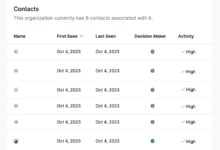Cloud Based WhatsApp CRM: 7 Powerful Benefits You Can’t Ignore
In today’s fast-paced digital world, businesses are turning to cloud based WhatsApp CRM solutions to supercharge customer engagement, streamline communication, and boost sales—all from one powerful platform.
What Is a Cloud Based WhatsApp CRM?

A cloud based WhatsApp CRM integrates the world’s most popular messaging app—WhatsApp—with customer relationship management (CRM) software hosted on the cloud. This fusion allows businesses to manage customer interactions, automate responses, track conversations, and maintain detailed customer profiles—all in real time and accessible from any device with internet connectivity.
Unlike traditional CRM systems that rely on on-premise servers and manual data entry, a cloud based WhatsApp CRM leverages the scalability and flexibility of cloud computing. It connects directly to WhatsApp Business API, enabling companies to send bulk messages, manage support tickets, and nurture leads through personalized conversations at scale.
How It Differs from Traditional CRM Systems
Traditional CRM platforms like Salesforce or HubSpot are powerful but often complex and disconnected from real-time messaging channels. A cloud based WhatsApp CRM bridges this gap by embedding conversational commerce directly into the CRM workflow.
- Real-time engagement: Conversations happen instantly via WhatsApp, not through delayed emails or forms.
- Mobile-first design: Optimized for smartphones, where most users spend their time.
- Automated workflows: Trigger messages based on user behavior without manual intervention.
“The future of customer service isn’t in call centers—it’s in messaging apps.” — Gartner Research, 2023
Key Components of a Cloud Based WhatsApp CRM
To function effectively, a cloud based WhatsApp CRM must include several core components that work together seamlessly:
- WhatsApp Business API Integration: Official gateway for businesses to use WhatsApp at scale, approved by Meta.
- Contact Management: Stores customer data such as phone numbers, purchase history, preferences, and conversation logs.
- Automation Engine: Enables chatbots, auto-replies, and drip campaigns based on triggers like message receipt or time delays.
- Analytics Dashboard: Tracks message delivery rates, response times, conversion metrics, and team performance.
- Team Collaboration Tools: Assign conversations to agents, set up internal notes, and manage ticketing systems within the platform.
Platforms like Twilio, MessageBird, and Zenvia offer robust cloud based WhatsApp CRM solutions that integrate with existing business tools like Shopify, Zendesk, and Google Sheets.
Why Businesses Are Adopting Cloud Based WhatsApp CRM
The shift toward cloud based WhatsApp CRM is not just a trend—it’s a strategic move driven by changing consumer behavior and technological advancements. With over 2.7 billion monthly active users, WhatsApp has become the go-to communication channel for customers across Asia, Latin America, Europe, and Africa.
Businesses are recognizing that people prefer messaging over calls or emails. According to a 2023 report by Statista, 68% of consumers prefer using messaging apps to contact customer support rather than calling a helpline. This demand has pushed companies to adopt cloud based WhatsApp CRM systems to stay competitive and relevant.
Meeting Customer Expectations for Instant Communication
Today’s customers expect immediate responses. A study by Harvard Business Review found that companies that respond within five minutes of a customer inquiry are 9 times more likely to convert leads.
A cloud based WhatsApp CRM enables instant replies through automation and AI-powered chatbots. For example, when a customer sends a query like “What are your store hours?” the system can instantly reply with predefined information, freeing up human agents for more complex tasks.
- Reduces average response time from hours to seconds.
- Provides 24/7 availability without hiring night shifts.
- Improves first-contact resolution rates.
This level of responsiveness builds trust and enhances the overall customer experience.
Scaling Customer Support Without Scaling Costs
One of the biggest advantages of a cloud based WhatsApp CRM is its ability to scale operations efficiently. Whether you’re handling 100 messages a day or 100,000, the same infrastructure can support growth with minimal additional cost.
For instance, during peak seasons like Black Friday or Diwali sales, automated workflows can handle order confirmations, shipping updates, and return policies—without requiring extra staff.
- Automate up to 80% of routine inquiries.
- Use broadcast lists to send personalized promotions to thousands of customers simultaneously.
- Integrate with e-commerce platforms to trigger post-purchase messages automatically.
This scalability makes cloud based WhatsApp CRM ideal for startups, SMEs, and large enterprises alike.
Top 7 Benefits of Using a Cloud Based WhatsApp CRM
Adopting a cloud based WhatsApp CRM isn’t just about staying current—it’s about unlocking tangible business benefits that drive growth, improve efficiency, and enhance customer satisfaction.
1. Real-Time Customer Engagement
With WhatsApp being a real-time messaging platform, businesses can engage customers the moment they show interest. Whether it’s answering a product question or sending a cart abandonment reminder, timing is everything.
A cloud based WhatsApp CRM allows businesses to set up triggers that initiate conversations based on user actions. For example:
- A visitor abandons their cart → Automatically receive a WhatsApp message: “Need help completing your purchase?”
- A customer views a pricing page → Get a follow-up: “Would you like a free demo?”
- A user downloads a brochure → Receive a personalized message: “How can we assist you further?”
This proactive engagement increases conversion rates and reduces drop-offs.
2. Centralized Customer Data Management
One of the biggest challenges in customer service is fragmented data. Sales, support, and marketing teams often work with different tools, leading to inconsistent messaging and missed opportunities.
A cloud based WhatsApp CRM centralizes all customer interactions in one place. Every message, note, tag, and transaction is linked to a single customer profile, giving teams a 360-degree view of the customer journey.
- View past conversations before responding to avoid repetition.
- Tag customers based on behavior (e.g., “high intent,” “churn risk”).
- Sync data with other CRMs or ERP systems via APIs.
This unified view improves personalization and helps build stronger relationships.
3. Automated Workflows and Chatbots
Automation is at the heart of any effective cloud based WhatsApp CRM. From greeting new contacts to qualifying leads, bots can handle repetitive tasks with speed and accuracy.
Advanced platforms use natural language processing (NLP) to understand customer intent and route queries appropriately. For example:
- Customer types “Track my order” → Bot fetches shipment status from the backend and replies instantly.
- User asks “Pricing for premium plan?” → Bot sends a PDF brochure and schedules a sales call.
- Customer says “Speak to agent” → Conversation is escalated to a live representative with full context.
According to a report by Juniper Research, chatbots will save businesses over $11 billion annually by 2025—mostly through reduced labor costs and increased efficiency.
4. Enhanced Security and Compliance
Security is a top concern when using messaging platforms for business. A cloud based WhatsApp CRM addresses this by adhering to strict data protection standards.
Since WhatsApp uses end-to-end encryption, all messages remain private between the sender and recipient. Reputable CRM providers add an extra layer of security by:
- Storing data in GDPR-compliant data centers.
- Offering role-based access control for team members.
- Providing audit logs for message tracking and compliance reporting.
This ensures that sensitive customer information—like addresses, payment details, or health records—is handled securely and in line with regulations like HIPAA or CCPA.
5. Seamless Integration with Business Tools
A standalone WhatsApp tool isn’t enough. The real power of a cloud based WhatsApp CRM comes from its ability to integrate with existing business ecosystems.
Most platforms offer native integrations or API access to connect with:
- E-commerce platforms (Shopify, WooCommerce)
- Customer support software (Zendesk, Freshdesk)
- Marketing automation tools (Mailchimp, ActiveCampaign)
- Payment gateways (Stripe, PayPal)
- Internal databases (Google Sheets, Airtable)
For example, when a customer completes a purchase on Shopify, the cloud based WhatsApp CRM can automatically send a thank-you message, delivery timeline, and a link to track the package—all without manual input.
6. Global Reach with Local Touch
WhatsApp is used in over 180 countries, making it an ideal channel for international businesses. A cloud based WhatsApp CRM allows companies to communicate globally while maintaining local relevance.
Features like multi-language support, timezone-based messaging, and localized templates help brands connect with customers in their preferred language and context.
- Send messages in Spanish to users in Mexico, French to customers in Senegal.
- Schedule broadcasts during local business hours.
- Use region-specific emojis and greetings to build rapport.
This global-local balance increases engagement and fosters brand loyalty across diverse markets.
7. Actionable Insights Through Analytics
Unlike regular WhatsApp chats, a cloud based WhatsApp CRM provides detailed analytics that help businesses make data-driven decisions.
Dashboards show key metrics such as:
- Message delivery and read rates
- Average response time
- Conversation volume by agent
- Conversion rates from campaigns
- Customer satisfaction scores (CSAT)
These insights allow managers to identify bottlenecks, optimize workflows, and measure ROI on messaging campaigns. For instance, if a promotional broadcast has low engagement, the team can tweak the message timing or content to improve results.
How to Choose the Right Cloud Based WhatsApp CRM for Your Business
With dozens of platforms claiming to offer the best cloud based WhatsApp CRM, selecting the right one can be overwhelming. The key is to evaluate solutions based on your business size, industry, goals, and technical requirements.
Assess Your Business Needs and Goals
Start by identifying what you want to achieve. Are you looking to improve customer support? Generate more leads? Automate order updates? Your objectives will determine which features are essential.
- Support-focused: Prioritize ticketing systems, agent collaboration, and SLA tracking.
- Sales-driven: Look for lead capture forms, CRM syncing, and chatbot qualification.
- Marketing-oriented: Focus on broadcast capabilities, segmentation, and campaign analytics.
For example, an e-commerce brand might prioritize integration with Shopify and automated post-purchase messaging, while a healthcare provider may need HIPAA-compliant messaging and appointment reminders.
Evaluate Key Features and Scalability
Not all cloud based WhatsApp CRM platforms are created equal. Here are the must-have features to look for:
- WhatsApp Business API Access: Ensure the provider is an official Meta Business Partner.
- Automation & Chatbots: Check if the platform supports NLP, conditional logic, and multi-step flows.
- Team Inbox: Allows multiple agents to manage conversations without overlap.
- API & Webhooks: Enables custom integrations with internal systems.
- Scalability: Can the platform handle increased message volume during campaigns?
Also, consider future growth. Will the CRM still work when you double your customer base or expand to new countries?
Check Security, Compliance, and Support
Data security should never be an afterthought. Verify that the cloud based WhatsApp CRM provider:
- Uses end-to-end encryption (inherited from WhatsApp).
- Stores data in secure, compliant data centers (e.g., AWS, Google Cloud).
- Offers two-factor authentication and role-based permissions.
- Provides clear documentation on GDPR, CCPA, or industry-specific compliance.
Additionally, assess the quality of customer support. Look for 24/7 availability, live chat, and onboarding assistance—especially if you’re new to WhatsApp automation.
Step-by-Step Guide to Setting Up a Cloud Based WhatsApp CRM
Implementing a cloud based WhatsApp CRM doesn’t have to be complicated. Follow this step-by-step guide to get started quickly and efficiently.
Step 1: Register for WhatsApp Business API
The first step is gaining access to the official WhatsApp Business API. You can do this directly through Meta or via a Business Solution Provider (BSP) like Twilio, MessageBird, or 360dialog.
Requirements include:
- A verified business Facebook page.
- A phone number dedicated to business use (not personal).
- Agreement to WhatsApp’s Business Terms and Commerce Policy.
Once approved, you’ll receive API credentials to connect your CRM platform.
Step 2: Choose and Connect Your CRM Platform
Select a cloud based WhatsApp CRM that supports API integration. Popular options include:
- Respond.io – Great for marketing and sales automation.
- Chat-API – Developer-friendly with robust API access.
- Interakt – Ideal for e-commerce and customer support.
Connect your WhatsApp API credentials to the CRM dashboard. Most platforms offer a guided setup wizard.
Step 3: Import Contacts and Segment Your Audience
Upload your customer database using CSV files or sync directly from tools like Google Sheets or HubSpot.
Then, segment your audience based on criteria such as:
- Purchase history
- Geolocation
- Engagement level (active vs. inactive)
- Customer lifecycle stage (prospect, buyer, loyal)
Segmentation allows you to send targeted, relevant messages that improve open and response rates.
Step 4: Design Automated Workflows and Templates
Create message templates for common scenarios. Remember, WhatsApp requires pre-approved templates for outbound messages.
Examples include:
- Order confirmation: “Hi {{name}}, your order #{{order_id}} has been confirmed!”
- Shipping update: “Your package is on the way! Track it here: {{tracking_link}}”
- Appointment reminder: “Hi {{name}}, your appointment is tomorrow at {{time}}. Reply YES to confirm.”
Set up automation rules to trigger these messages based on events like form submissions, purchases, or date changes.
Step 5: Train Your Team and Monitor Performance
Ensure your sales and support teams understand how to use the cloud based WhatsApp CRM effectively.
Provide training on:
- Handling incoming messages.
- Using quick replies and canned responses.
- Escalating complex issues to senior agents.
- Following brand voice and compliance guidelines.
Use the analytics dashboard to monitor KPIs like response time, resolution rate, and customer satisfaction. Adjust workflows based on performance data.
Real-World Use Cases of Cloud Based WhatsApp CRM
From e-commerce to healthcare, businesses across industries are leveraging cloud based WhatsApp CRM to transform customer interactions. Here are some real-world examples.
E-Commerce: Automating Order Management
An online fashion retailer uses a cloud based WhatsApp CRM to automate the entire post-purchase journey.
- After checkout, customers receive an instant order confirmation via WhatsApp.
- When the item ships, a tracking link is sent automatically.
- Three days after delivery, a message asks for a review or offers styling tips.
- If the customer doesn’t respond, a discount code is sent after seven days to encourage repurchase.
Result: 40% increase in customer satisfaction and 25% higher repeat purchase rate.
Healthcare: Streamlining Patient Communication
A clinic in Brazil uses a cloud based WhatsApp CRM to manage patient appointments and follow-ups.
- Patients book appointments via a WhatsApp link.
- Automated reminders are sent 24 hours before consultations.
- After visits, doctors send care instructions and medication reminders.
- Patients can ask questions through WhatsApp, reducing phone call volume by 60%.
Result: 90% appointment attendance rate and improved patient outcomes.
Banking: Enhancing Customer Support
A digital bank in India uses WhatsApp CRM to provide instant support and fraud alerts.
- When a transaction occurs, customers receive a notification: “Did you make a payment of ₹2,500 to Amazon?”
- Users can reply “NO” to flag fraud, triggering an immediate freeze on the card.
- Common queries like “Check balance” or “Block ATM card” are handled by chatbots.
- Complex issues are routed to live agents with full chat history.
Result: 70% reduction in call center load and faster resolution times.
Common Challenges and How to Overcome Them
While cloud based WhatsApp CRM offers immense benefits, businesses may face certain challenges during implementation and usage.
Challenge 1: Gaining WhatsApp API Approval
Many companies struggle to get approved for the WhatsApp Business API due to strict verification processes.
Solution: Work with an official BSP (Business Solution Provider) who can guide you through compliance, template submission, and verification. Avoid unofficial third-party tools that violate WhatsApp’s policies and risk account bans.
Challenge 2: Managing High Message Volume
During campaigns, businesses may experience a surge in messages that overwhelm agents.
Solution: Use automation to filter and prioritize messages. Set up chatbots to handle FAQs and only escalate complex queries to humans. Implement queuing systems to manage response order fairly.
Challenge 3: Ensuring Message Deliverability
Not all messages are delivered, especially if templates are rejected or users haven’t opted in.
Solution: Always obtain explicit consent before messaging. Use opt-in buttons on websites or QR codes. Follow WhatsApp’s template guidelines strictly—avoid promotional language in service messages.
Regularly clean your contact list to remove inactive or invalid numbers.
Future Trends in Cloud Based WhatsApp CRM
The evolution of cloud based WhatsApp CRM is far from over. Emerging technologies and shifting consumer behaviors are shaping the next generation of conversational commerce.
AI-Powered Personalization at Scale
Future cloud based WhatsApp CRM systems will leverage advanced AI to deliver hyper-personalized experiences. Imagine a bot that not only knows your purchase history but also predicts your needs based on browsing behavior, weather, or life events.
For example, a customer who buys baby clothes might automatically receive messages about diapers, strollers, or parenting tips—timed perfectly with their journey.
Integration with Voice and Video Calling
While WhatsApp already supports voice and video calls, future CRM platforms may integrate these features directly into the workflow.
Agents could initiate a video call from the CRM dashboard to demonstrate a product or resolve a complex issue—seamlessly transitioning from text to voice without switching apps.
Rise of WhatsApp as a Sales Channel
WhatsApp is evolving from a support tool to a full-fledged sales channel. Features like catalogs, payment links, and shopping bots are turning chats into storefronts.
Cloud based WhatsApp CRM will become the backbone of “conversational selling,” where every interaction moves the customer closer to a purchase—guided by AI, automation, and real-time data.
FAQ
What is a cloud based WhatsApp CRM?
A cloud based WhatsApp CRM is a software platform that integrates WhatsApp messaging with customer relationship management tools hosted on the cloud. It enables businesses to manage customer conversations, automate responses, track interactions, and analyze performance—all in real time and from any device.
Is WhatsApp CRM secure for business use?
Yes, when using the official WhatsApp Business API through a trusted provider. WhatsApp uses end-to-end encryption, and reputable cloud based WhatsApp CRM platforms comply with data protection regulations like GDPR and CCPA. Always avoid unofficial third-party apps that compromise security.
Can I automate messages on WhatsApp legally?
Yes, but only through the official WhatsApp Business API and with user consent. Automated messages must use pre-approved templates for initial outreach. Once a customer replies, you can have unlimited conversational messages.
How much does a cloud based WhatsApp CRM cost?
Costs vary by provider and usage. Most platforms charge based on conversation volume (e.g., $0.005 to $0.01 per message). Some offer monthly plans starting at $50, while enterprise solutions can cost thousands. Always check pricing models before committing.
Can I integrate WhatsApp CRM with my existing tools?
Yes, most cloud based WhatsApp CRM platforms offer integrations with popular tools like Shopify, Zendesk, Google Sheets, and HubSpot via APIs or native connectors. This ensures seamless data flow across your tech stack.
Adopting a cloud based WhatsApp CRM is no longer optional—it’s essential for businesses that want to deliver fast, personalized, and scalable customer experiences. From automating routine tasks to unlocking deep customer insights, this technology empowers organizations to build stronger relationships and drive growth. As messaging continues to dominate customer communication, those who embrace cloud based WhatsApp CRM today will lead the market tomorrow.
Further Reading:



